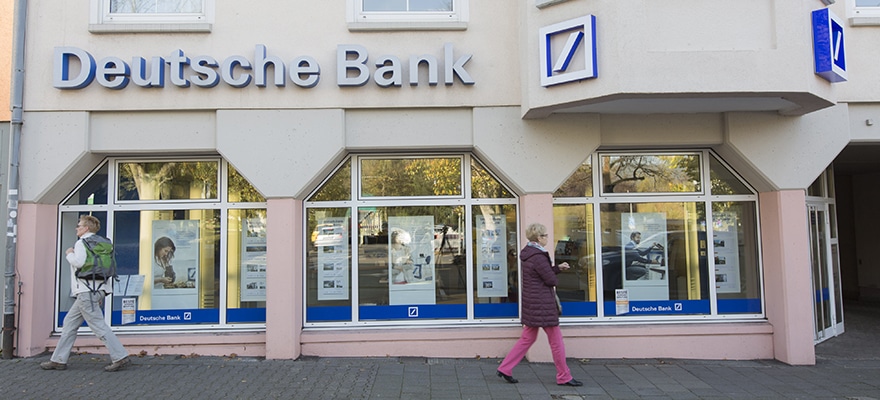Deutsche Bank has implemented a new anti-money laundering platform – SWIFT’s Know Your Customer (KYC) Registry. The move is the most recent of many such adjustments that banks have had to make in response to heightened regulatory requirements.
This central repository with frequently updated customer information should greatly facilitate the KYC process.
The bank’s Global Transaction Banking (GTB) division now utilizes the KYC service as part of its due diligence procedures. According to the new procedures, GTB’s institutional clients who make their data available via this shared platform “will now benefit from a smoother and streamlined review as part of the regular KYC process the Bank has to undertake,” the bank said in a press statement today.
The KYC Registry
The KYC Registry is the result of an extensive development and piloting process, involving a working group composed of major global banks and coordinated by the Society for Worldwide Interbank Financial Telecommunication (SWIFT).
The KYC Registry includes entities from more than 130 countries, facilitating compliance with a growing number of correspondent relationships worldwide.
The KYC Registry maintains and provides access to information repositories, which are necessary to manage compliance with anti-money laundering and KYC rules across multiple jurisdictions.
In line with , banks contribute information to the registry, which must adhere to an extensive, transparent and standardised set of KYC data and documentation requirements. While banks maintain ownership and control of their data, the registry allows contributors to more easily share their data with their counterparties.
The KYC Registry includes entities from more than 130 countries, facilitating compliance with a growing number of correspondent relationships worldwide.
Stamping out Bad Behaviour
As financial fraud, money laundering and terrorist financing have become matters of global concern, policies have been sought to stamp out bad behaviour.
Global KYC regulation has increasingly demanded that counterparties in global financial transactions provide detailed, anti-corruption due diligence information.
Accordingly, global KYC regulation has increasingly demanded that counterparties in global financial transactions provide detailed, anti-corruption due diligence information to verify their probity and integrity.
Naturally, heightened regulation has put additional pressure on banks to ensure compliance. The KYC registry is an initiative which aims to address these challenges.
Gottfried Leibbrandt, Chief Executive Officer of SWIFT, explains: “Regulatory compliance imposes an enormous cost burden on banks and they are actively looking for common platforms to help mutualize that cost and reduce risk. The KYC Registry is our flagship in financial crime compliance, delivering on our commitment to provide community-wide solutions for the industry.”
Marcus Sehr, Global Head of Institutional Cash, Global Transaction Banking, at Deutsche Bank, said: “This central repository with frequently updated customer information should greatly facilitate the KYC process. The KYC Registry should help us to meet ever growing requirements around compliance standards while at the same time reduce the administrative burden for those clients who participate in the initiative. Such level of standardisation and collaboration is key to improve the efficiency and reliability of recurring KYC controls.”





Be First to Comment